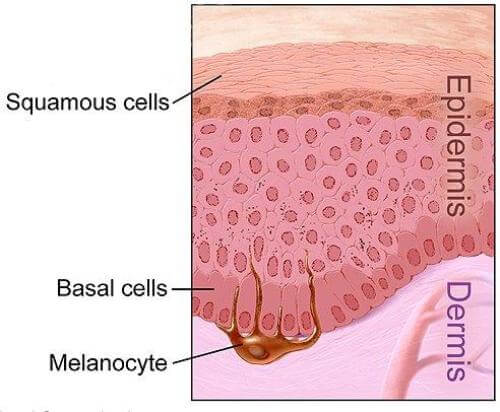Scientists at Sanford-Burnham Medical Research Institute (Sanford-Burnham) today announced the discovery that a gene encoding an enzyme, phosphoinositide-dependent kinase-1 (PDK1), plays an essential role in the development and progression of melanoma. The finding offers a new approach to treating this life-threatening disease.
MRV Research
T-rays offer potential for earlier diagnosis of melanoma
The technology that peeks underneath clothing at airport security screening check points has great potential for looking underneath human skin to diagnose cancer at its earliest and most treatable stages, scientists say.
Anis Rahman, Ph.D., who spoke on the topic, explained that malignant melanoma, the most serious form of skin cancer, starts in pigment-producing cells located in the deepest part of the epidermis. That’s the outer layer of the skin. Biochemical changes that are hallmarks of cancer occur in the melanocytes long before mole-like melanomas appear on the skin.
Buying Time
There is not a person in the community that is not affected by cancer in some way. Four Corners go inside the hospitals and consulting rooms with Australians who are confronting the reality that the advanced cancer they have could kill them.
The question is, how much time have they left and what can their doctors do to buy them more time?
Small vaccine implant to fight skin cancer begins human trials in US
An experimental vaccine implant to treat skin cancer has begun early trials in humans, as part of a growing effort to train the immune system to fight tumours, researchers said Friday.
The approach, which was shown to work in lab mice in 2009, involves placing a fingernail-sized sponge under the skin where it reprograms a patient’s immune cells to find cancerous melanoma cells and kill them.

